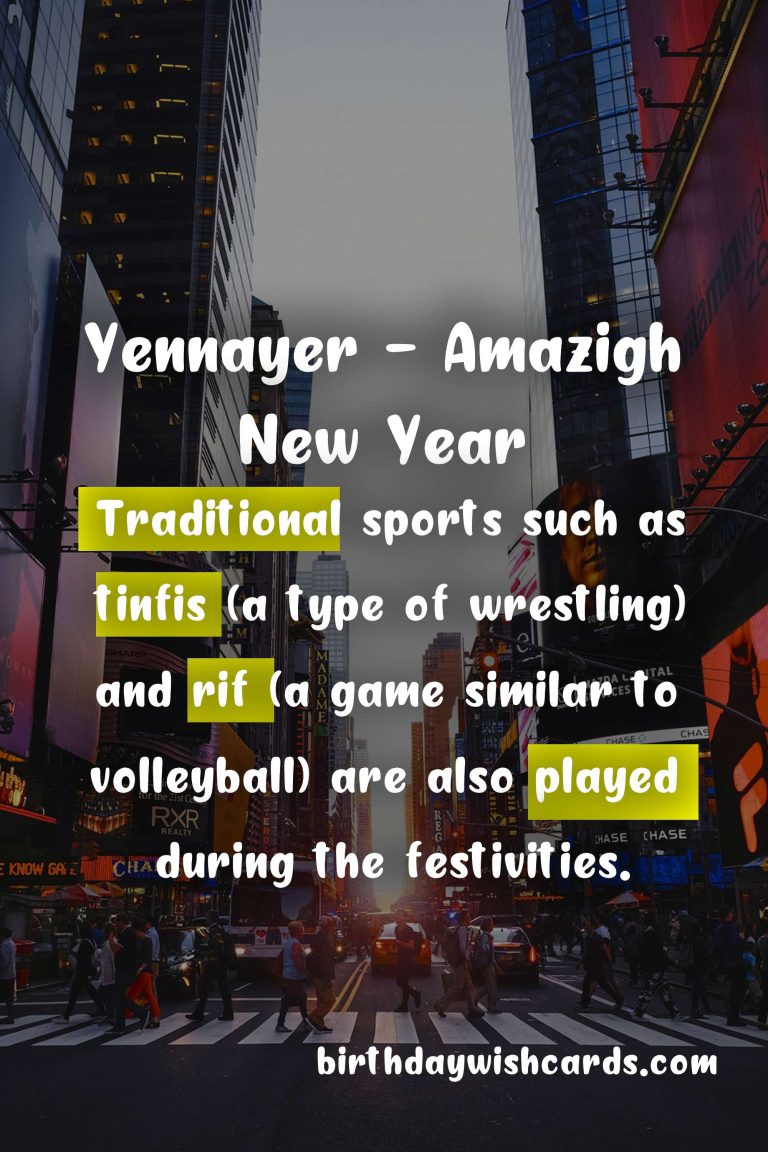Celebrate Yennayer: The Amazigh New Year in January
January, the first month of the year, is filled with important dates and celebrations across the globe. Among these, Yennayer stands out as a vibrant cultural festival marking the Amazigh New Year. The Amazigh people—also known as Berbers—are the indigenous inhabitants of North Africa, known for their rich heritage and centuries-old traditions. Yennayer is more than just a new year celebration; it is a powerful expression of Amazigh identity, history, and community spirit.
This article explores the origins, customs, and significance of Yennayer, highlighting why this festival holds a special place in the hearts of Amazigh people worldwide.
What is Yennayer?
Yennayer is celebrated annually on January 12th, marking the start of the Amazigh agricultural calendar. Deeply rooted in tradition, this date symbolizes renewal, fertility, and hope for prosperity in the coming year. Unlike the internationally used Gregorian calendar, the Amazigh calendar counts years differently; this Yennayer marks the beginning of the year 2971 in their system.
The name Yennayer comes from the Tamazight word “Yennaw”, meaning “to scream”. This reflects the spirited and lively nature of the festivities, which are filled with singing, dancing, and communal gatherings.
The Cultural Significance of Yennayer
Yennayer is a vivid celebration of Amazigh culture. From traditional clothing and music to food and games, the festival embodies the community’s ancestral way of life. It is a time for families and communities to come together, honor their roots, and pass down customs to younger generations.
Historically, Yennayer signaled the end of the harsh winter and the beginning of the planting season—a vital marker in the agricultural year. This connection to the land underscores the importance of nature and the environment in Amazigh traditions.
How is Yennayer Celebrated?
Yennayer festivities span three days, each with unique rituals and activities that highlight different aspects of Amazigh life:
- Day 1: Ilfu

